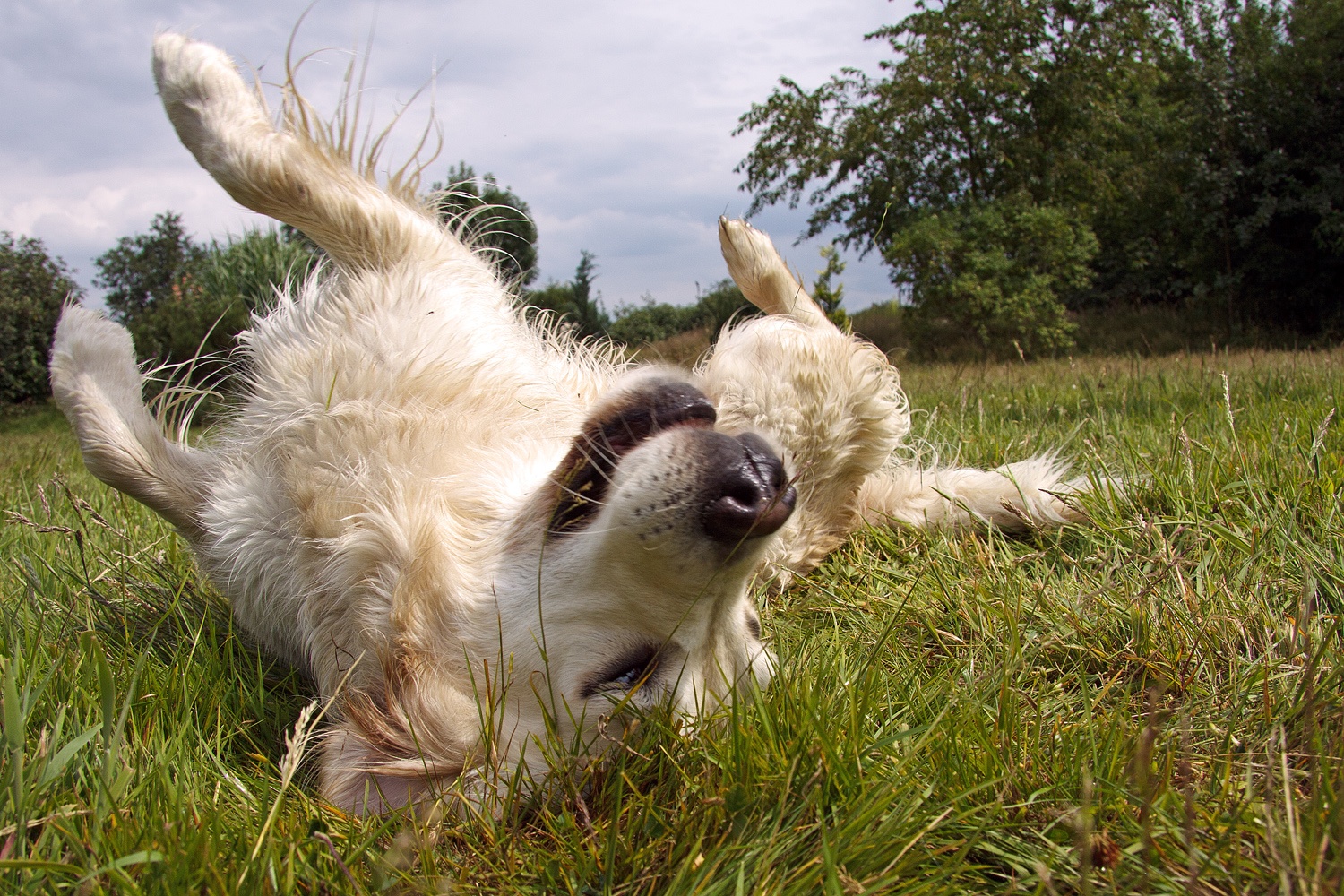We humans know that hay fever can sometimes feel like it’s coming close to spoiling summer. Running noses, itchy eyes, and sneeze-fests can make some people want to avoid the great outdoors, just when the weather’s finally showing some promise. But what about our dogs, can they get hay fever, too?
Achoo? Debunking the ‘dog hay fever’ myth
Dogs don’t get hay fever, at least not in the same way we humans do. However, dogs can be allergic to pollen, but this exhibits as irritated skin (see below for more information on this). Here are some of the signs of dog’s allergic reactions:
- Scratching, licking more than usual. Sometimes excessive biting.
- A rash or sores on their skin
- Shaking their head / ears
- Smelly ears (ew!)
- Excessive whining or complaining
- Sneezing (less likely to be pollen related, but can happen in some cases)
If you suspect your dog is having an allergic reaction, we heartily recommend you get your dog checked to make sure it isn’t something else – any of these symptoms could point to something nastier! If your dog is sneezing chronically, or you’ve spotted coloured, smelly discharge from their nose, it’s unlikely to be pollen, so please get your dog checked by a vet to make sure it’s not a blockage or an infection.
Furry fact
Veterinary medicine doesn’t have a term to describe hay fever in dogs. The human condition is called rhinitis: irritation inside the nose after exposure to pollen. Dogs are much more likely to suffer from canine atopy. This means irritated skin caused by an allergen, particularly in areas such as the paws, ears, face and belly.
How to soothe your dog’s itchiness
Your vet may want to rule out other skin issues – such as ectoparasites (fleas, ticks, and ear mites), bacterial infection, flea bite hypersensitivity – before concluding that your dog has canine atopy.
Once your vet has determined that it is canine atopy, they may prescribe a variety of medications, including antihistamines, antibiotics and dietary supplements, depending on the severity and your dog’s breed.
Before self-medicating your pup it’s really important to check in with your vet – we really wouldn’t recommend giving your dog human medication!
In the meantime, here are a few simple home remedies to help keep your itchy four-pawed friend comfortable:
- Help keep your pups’ paws free of pollen: simply wipe their paws using a wet towel or you could stock up on some handy wipes from our friends over at Animology. Cleansing after they’ve been outdoors will help stop spreading the itch-causing pollen around their hair and skin.
- A cold bath with salt water can help clean irritated skin – be sure to rinse thoroughly to ensure there’s no chance of licking salty paws – you don’t want to give your dog a bad tummy!
- Add honey to food and baths: just like with us humans, eating honey can be an effective remedy against pollen-allergies, and to build a natural resistance to local pollen. Only allow very small doses – a couple of teaspoons at most. Honey can also prove to be an effective addition to a shampoo formula to help soothe irritation. Here’s a homemade recipe that’ll make your dog smell like cookies.
- We’ve said it before – please see a vet. They’ll want to rule out anything nastier, and make sure your dog gets the best treatment.
If your dog suffers from pollen allergies, what remedies or treatments have you found effective? Let us know in the comments below.

